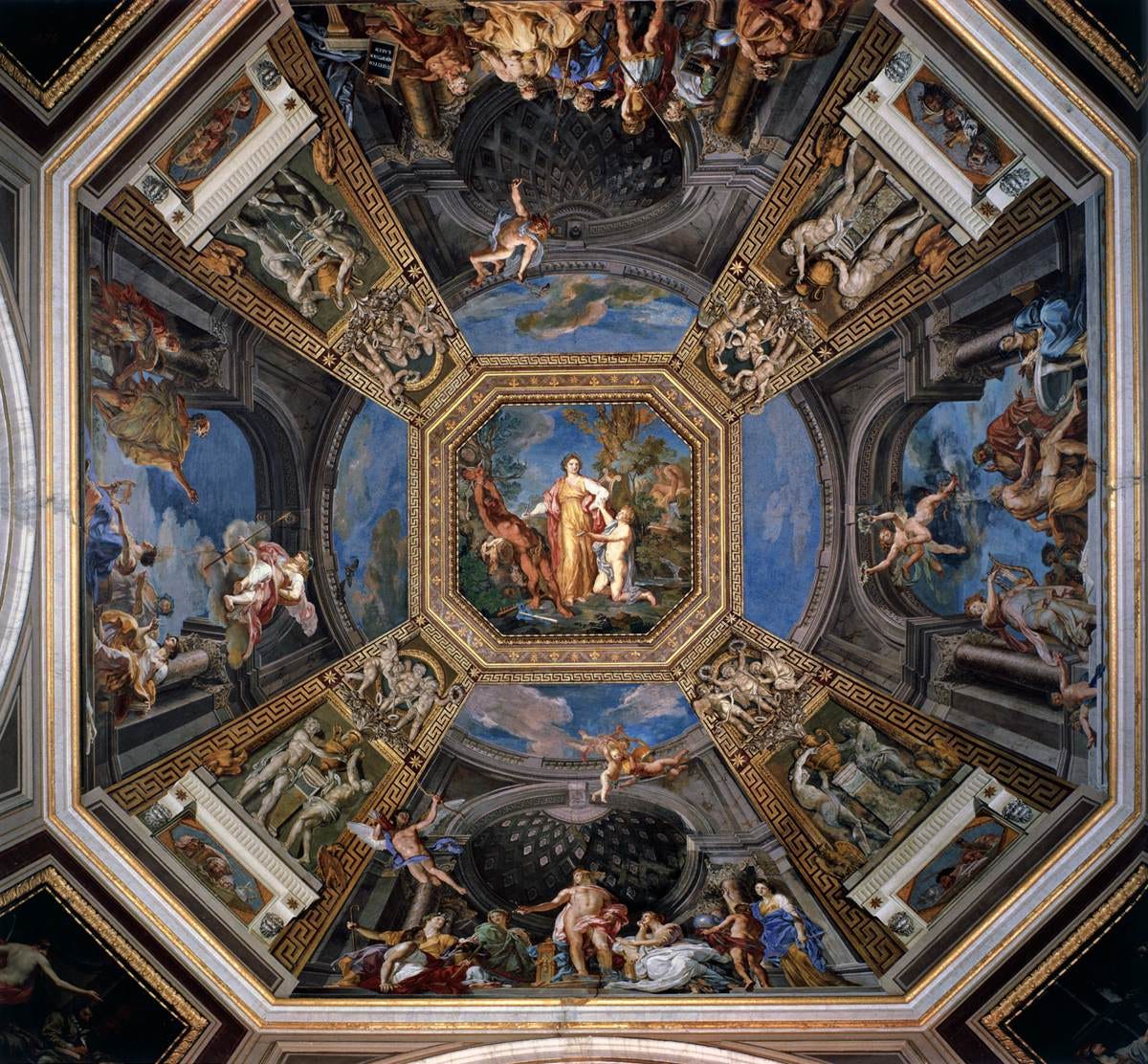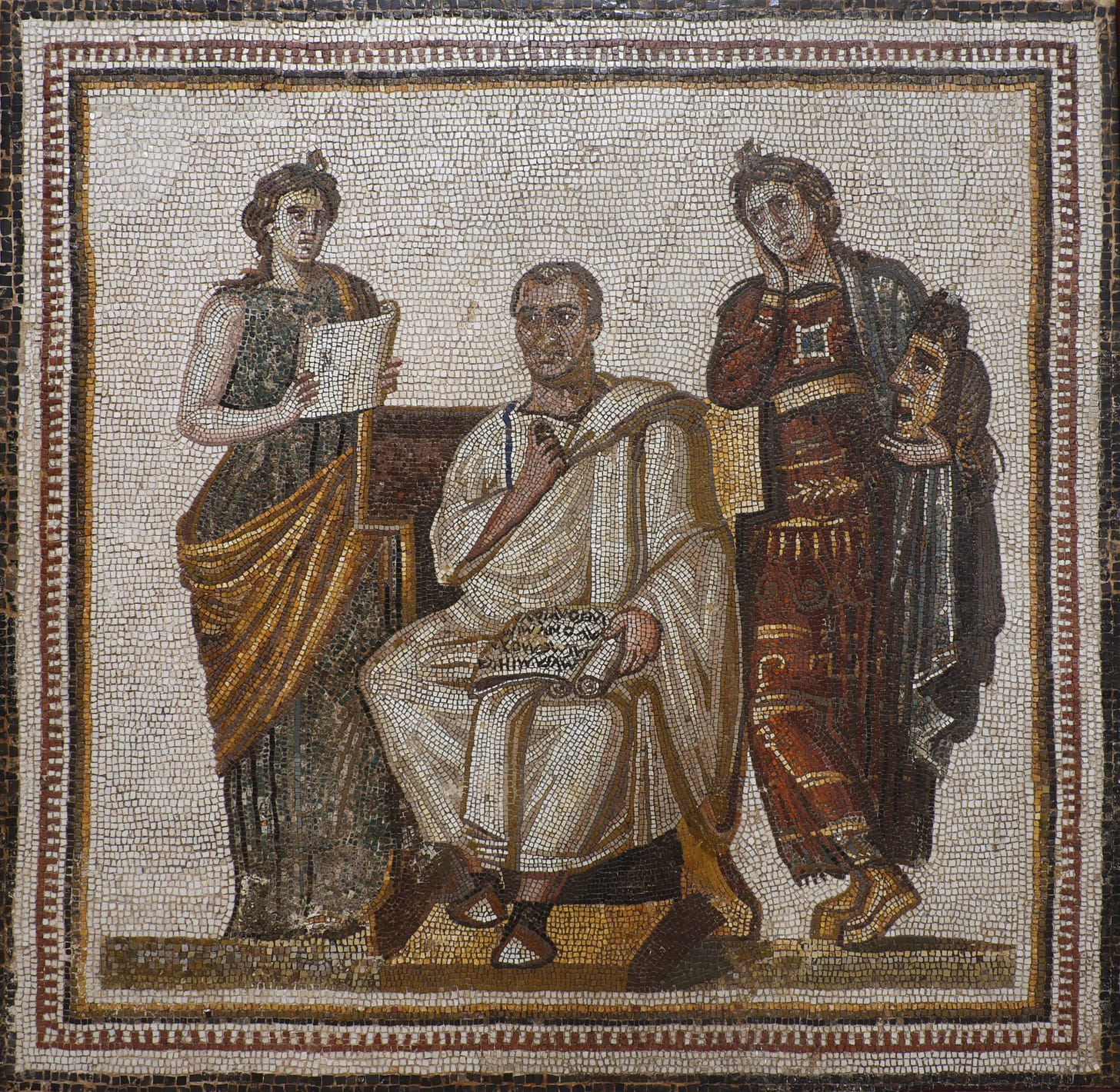Divine Dictation: On the Origins of Poetry, the "Language of Gods"
"A man cannot say, ‘I will compose poetry.’ The greatest poet even cannot say it; for the mind in creation is as a fading coal, which some invisible influence... awakens to transitory brightness."
“Sing to me of the man, Muse, the man of twists and turns…”
So begins Homer’s Odyssey, the Greek epic that has inspired countless generations for the past three millennia.
Ancient poets were unambiguous about the “divine” source of their creativity. “These things declare to me from the beginning, ye Muses,” opens Hesiod’s Theogony in the 8th century BC. “Of the far-flinging lord come sing me, O my soul,” wrote Terpander in a fragment dated to the 7th century BC.
Plato compares poets to mad dancers overcome by Dionysian frenzy, unable to write unless some godly force speaks through them. From a dialogue between Socrates and Ion in the 4th century BC1:
For all good poets, epic as well as lyric, compose their beautiful poems not by art, but because they are inspired and possessed. …
The poet is a light and winged and holy thing, and there is no invention in him until he has been inspired and is out of his senses, and the mind is no longer in him: when he has not attained this state, he is powerless and is unable to utter his oracles.
The invocation of muses is not some benign artifact of a previous age’s superstitions, and today’s writers ignore it at their own peril. Many of the great storytellers of recent centuries understand this well.
English poet Percey Blysshe Shelley wrote in “A Defense of Poetry” (1821) that it is “an error to assert that the finest passages of poetry are produced by labor and study.”2
Poetry is not like reasoning, a power to be exerted according to the determination of the will. A man cannot say, ‘I will compose poetry.’ The greatest poet even cannot say it; for the mind in creation is as a fading coal, which some invisible influence, like an inconstant wind, awakens to transitory brightness; this power arises from within… and the conscious portions of our natures are unprophetic either of its approach or its departure.
The French philosopher Montaigne wrote in the 16th century that “divine poetry is above rules and reason,”3 reflecting on how enchantment spreads and attracts others:
Whoever discerns its beauty with a firm, sedate gaze does not see it, any more than he sees the splendor of a lightning flash. It does not persuade our judgment, it ravishes and overwhelms it. The frenzy that goads the man who can penetrate it also strikes a third person on hearing him discuss it and recite it, as a magnet not only attracts a needle but infuses into it its own faculty of attracting others.
And it is seen more clearly in the theater that the sacred inspiration of the muses, after first stirring the poet to anger, sorrow, and hatred and transporting him out of himself wherever they will, then through the poet strikes the actor, and through the actor consecutively a whole crowd. It is the chain of our needles, hanging one from the other.

Princeton psychology professor Julian Jaynes argued that poetry, which he called “the language of gods,” may have helped usher in human consciousness itself. He wrote in his magnum opus, The Origins of Consciousness in the Breakdown of the Bicameral Mind (1976)4:
Why, particularly in times of stress, have [so many people] written poems? What unseen light leads us to such dark practice? And why does poetry flash with recognitions of thoughts we did not know we had, finding its unsure way to something in us that knows and has known all the time, something, I think, older than the present organization of our nature? …
Poems are rafts clutched at by men drowning in inadequate minds. And this unique factor, this importance of poetry in a devastating social chaos, is the reason why Greek consciousness specifically fluoresces into that brilliant intellectual light which is still illuminating our world.
From Jaynes’ point of view, poetry is not just art, but infrastructure for the psyche. It is essential to what makes us human, an instrument for understanding who we are and our place in the universe. Shelley wrote that “poetry lifts the veil from the hidden beauty of the world,” that the poet “participates in the eternal, the infinite, and the one.” Robert Frost wrote in a letter to a friend, “My poems… are all set to trip the reader head foremost into the boundless.”
Some uneasiness about the “spiritual” aspect of poetry is understandable in our hyper-rationalist world. American author Julie Orringer summed up this trepidation well in a 2003 interview5:
“There are certainly times when there is no buzz at all, where there is nothing at all. I just feel like I am clacking out the words on a keyboard and they are just dead on the page. There are other times when I feel I have entered this fugue state where everything seems to drop away and I am almost channeling the story through the character. I don't want to sound New Agey or mystical about that but it does feel like it is something that is not entirely under my control and that is an exhilarating feeling. It is exciting.”

This recognition of enchantment, inspiration, transcendence — a divine spark — is not limited to just poetry, but is relevant for anyone trying to tell meaningful stories. Filmmaker Werner Herzog called it “ecstatic truth” in his 1999 Minnesota Declaration6:
There are deeper strata of truth in cinema, and there is such a thing as poetic, ecstatic truth. It is mysterious and elusive, and can be reached only through fabrication and imagination and stylization.
I’m not suggesting that you must invoke muses in an Eleusinian ceremony before sitting down at your desk, but I do wish more writers would pay attention when inspiration strikes. Charles Bukowski, a favorite of this publication, wrote in a 1963 letter to his publisher: “When I am writing well, I feel as if I am being dictated to. I simply listen and take it down.”
The ancient Greeks would certainly be able to relate to Bukowski’s poem, so you want to be a writer?, which was published in the 2004 collection, Sifting Through the Madness for the Word, the Line, the Way:
if it doesn't come bursting out of you
in spite of everything,
don't do it.
unless it comes unasked out of your
heart and your mind and your mouth
and your gut,
don't do it.
if you have to sit for hours
staring at your computer screen
or hunched over your
typewriter
searching for words,
don't do it.
if you're doing it for money or
fame,
don't do it.
if you're doing it because you want
women in your bed,
don't do it.
if you have to sit there and
rewrite it again and again,
don't do it.
if it's hard work just thinking about doing it,
don't do it.
if you're trying to write like somebody
else,
forget about it.if you have to wait for it to roar out of
you,
then wait patiently.
if it never does roar out of you,
do something else.if you first have to read it to your wife
or your girlfriend or your boyfriend
or your parents or to anybody at all,
you're not ready.don't be like so many writers,
don't be like so many thousands of
people who call themselves writers,
don't be dull and boring and
pretentious, don't be consumed with self-
love.
the libraries of the world have
yawned themselves to
sleep
over your kind.
don't add to that.
don't do it.
unless it comes out of
your soul like a rocket,
unless being still would
drive you to madness or
suicide or murder,
don't do it.
unless the sun inside you is
burning your gut,
don't do it.when it is truly time,
and if you have been chosen,
it will do it by
itself and it will keep on doing it
until you die or it dies in you.there is no other way.
and there never was.
Benjamin Jowett translation: https://classics.mit.edu/Plato/ion.html
Shelley wrote this essay as a response and expansion on the views of his friend Thomas Love Peacock, who satirized utilitarian viewpoints about poetry and mocked those who think the art is pointless in an age of science and reason: https://www.poetryfoundation.org/articles/69388/a-defence-of-poetry
Donald M. Frame 1958 translation: https://www.sup.org/books/theory-and-philosophy/complete-essays-montaigne
Jaynes’ grand thesis is beyond the scope of this piece, but it is a wonderful rabbit hole to go down — he posits that human consciousness, or the “ability to introspect,” only developed relatively recently, around the 2nd century BC. Before that, humans were in a non-conscious state he termed the bicameral mind, in which they experience auditory hallucinations of “gods” that guided them. Homer and other ancient Greek literature marked the turning point for humanity, when consciousness was born.
Interview in The Morning News: https://themorningnews.org/birnbaum-v--julie-orringer/
Herzog published this manifesto as a rebuke of Cinema Verité, a French style of documentary filmmaking that emphasizes realism and facts: https://www.wernerherzog.com/text-by-werner-herzog.html




Really insightful! Love the Bukowski but also the scholars you include.